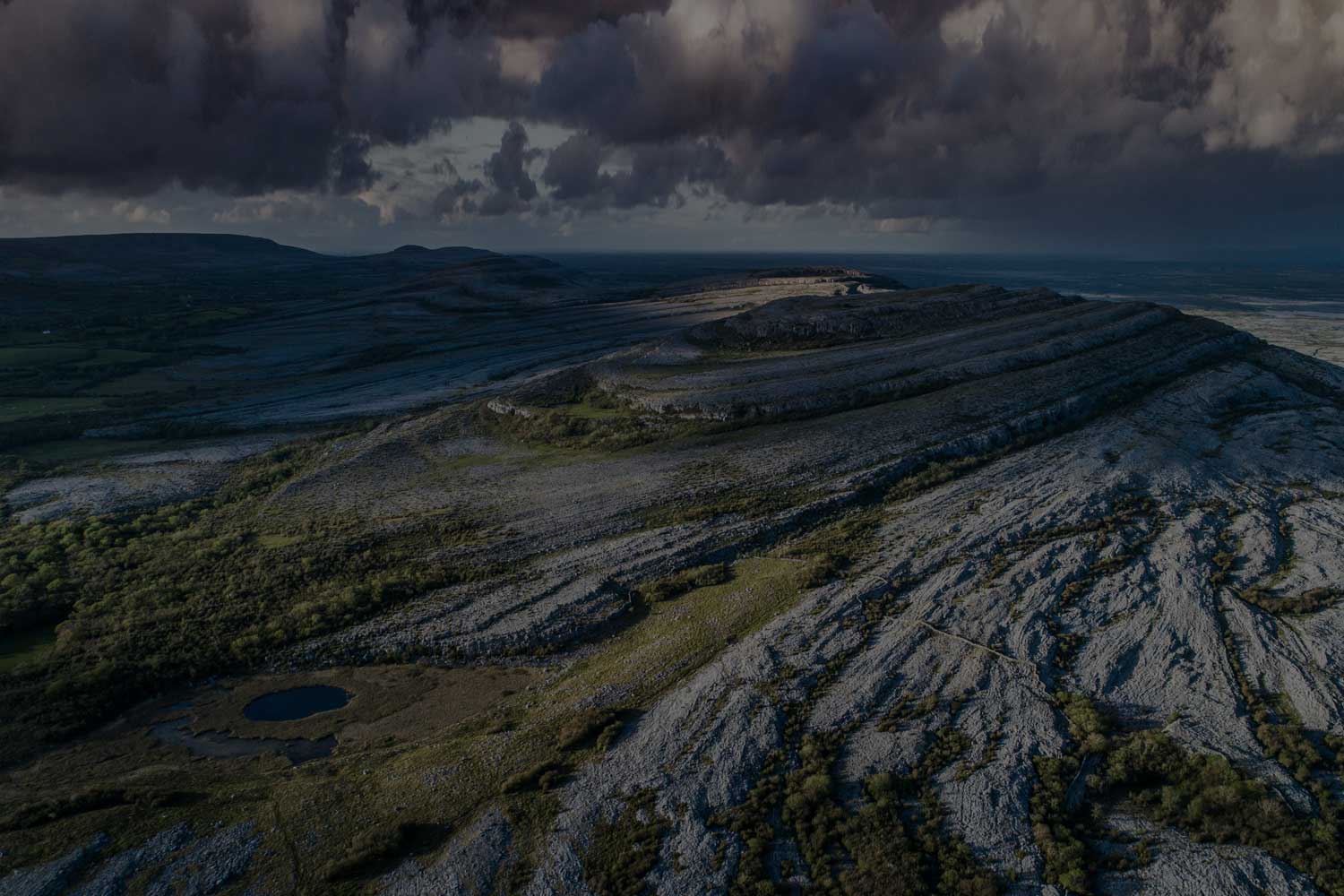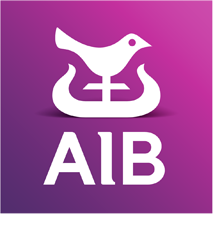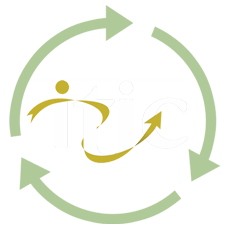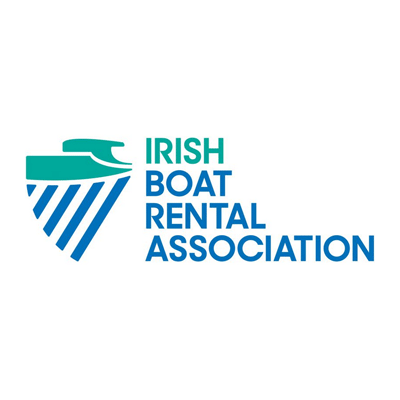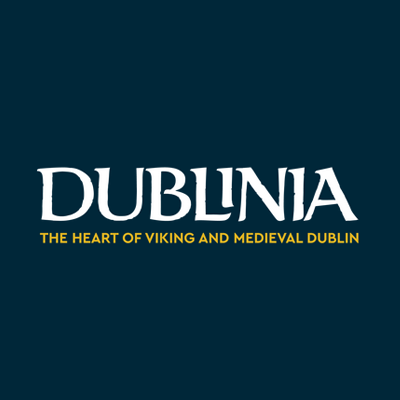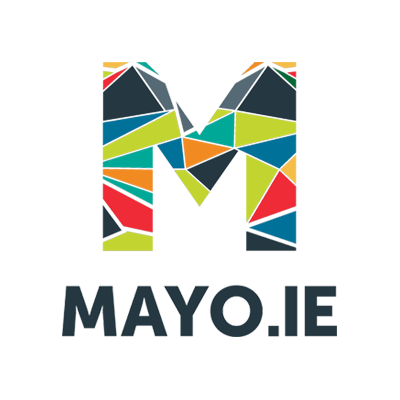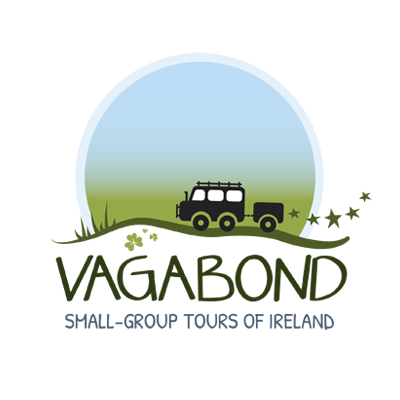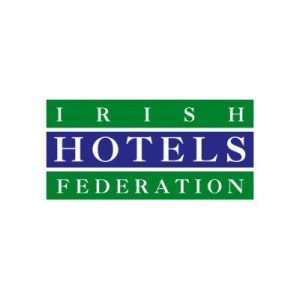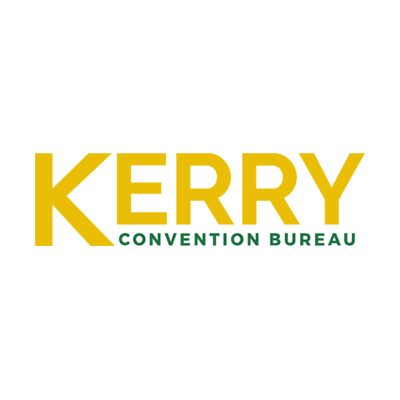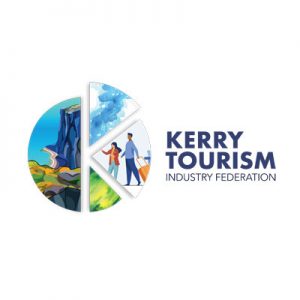Introduction
With Irish tourism’s volume and value having collapsed due to the Covid-19 pandemic, the long road to recovery has only finally commenced. Despite the war in Ukraine, business inflation, and labour shortages, there is a degree of cautious optimism that pent up demand combined with the speedy restoration of much of the air access links and industry resilience can see a positive 2022. As difficult as the pandemic was – estimated to have cost Irish tourism and hospitality businesses as much as €12.2 billion – it also presents an opportunity to reimagine Irish tourism for the years ahead. In that context being a sustainable industry is of most concern, and sustainability across the three spheres of commercial, social and environmental is what matters.
This key report by the Irish Tourism Industry Confederation (ITIC), the representative body for all key tourism and hospitality stakeholders in the country, is the first staging post on an ongoing journey in search of a sustainable tourism industry. The report – put together with the able assistance of an industry steering group and approved by ITIC’s Board and Council – sets out a strategic roadmap whereby the sector can enjoy a sustainable future, one where businesses can be viable and profitable, communities are benefitted, and the existential environmental challenges are addressed head-on. Critically all three areas of sustainability – economic, social and environmental – need to co-exist. The economic benefits of tourism must be preserved for industry and the exchequer whilst minimizing the sector’s carbon footprint and ensuring social cohesion.
Ireland’s tourism industry is up for this considerable challenge as this report articulates.
The report sets out 26 key policy recommendations which will need to be implemented to enable industry become more sustainable. Critically, and for the benefit of both people and planet, the Irish tourism sector will need to address the environmental sustainability agenda and ITIC, on behalf of the country’s tourism industry, make a commitment that Ireland’s tourism industry will play its full role in Ireland’s obligations. And those obligations – as set out in the Climate Action Plan 2021 – are demanding with a 51% reduction in green house gases (GHG) by 2030 and carbon-neutral by 2050. Achieving such reductions in carbon whilst regrowing an industry will be extraordinarily challenging.
This report outlines opportunities and challenges as Irish tourism aims to become more sustainable. Many businesses within the sector are already well on the journey with a number of case studies outlined below.
The Irish Government is set to publish a new national tourism policy early next year with sustainability at its heart. This report by ITIC aims to state the industry’s viewpoint clearly to help Government put in place a national policy that is aligned with businesses, and one that can overcome challenges and maximise any opportunities.


Chairperson
Ruth Andrews


CEO
Eoghan O’Mara Walsh
ITIC would like to sincerely thank the industry steering group who helped formulate this report and its recommendations, acknowledge the work and assistance of the Department of Tourism, Culture, Arts, Gaeltacht, Sport and Media as well as Fáilte Ireland and Tourism Ireland, and appreciate the input of the many tourism stakeholders who were consulted in recent weeks. A multitude of sources were used to assist ITIC including the Climate Action Plan (Nov 2021), the Sustainable Tourism Working Group report (Sep 2021), the WTTC’s Net Zero Roadmap for Travel & Tourism (date), as well as Visit Scotland, Tourism New Zealand and Norway’s National Tourism Strategy.
DEFINING SUSTAINABLE TOURISM
“Tourism that takes full account of its current and future economic, social and environmental impacts, addressing the needs of visitors, the industry, the environment and host communities”
UN World Tourism Organization
For the purposes of this report ITIC has used the UN World Tourism Organization definition of sustainable tourism.
In 2015 the UN developed a set of 17 Sustainable Development Goals in order to frame the UN member states’ agendas and policies up to 2030. Following this in 2018 the Irish Government set out how Ireland intends to implement the 17 Sustainable Development Goals (SDG) through development of actions and targets around each goal. It is incumbent upon all Government Agencies and Departments to ensure these actions and targets are adhered to and that each sector contributes to Ireland’s realisation of these goals. Specifically there are four Sustainable Development Goals (8, 12, 14 & 17) that have targets relating to tourism. The most relevant SDG is Goal 12 namely “Develop and implement tools to monitor sustainable development impacts for sustainable tourism that creates jobs and promotes local culture and products.”
It is welcome that early next year the Irish Government is set to publish a new national tourism policy and sustainability will be central to this. This ITIC report, and the recommendations within, aim to influence that policy and ensure that Ireland becomes amongst the world leaders in sustainable tourism practices.
OPPORTUNITIES & CHALLENGES
There are both opportunities and challenges within Irish tourism’s journey to a more sustainable future.
Becoming sustainable is simply a “must do”. Implementing transformational change will be good for the planet and, if done correctly, also good for businesses’ bottom line as well as supporting the communities within which tourism is embedded. In an Irish tourism context successful implementation of sustainable tourism practices should deliver metrics that will help to establish a better understanding of carbon and financial costs and help mitigate against both. It has long been recognised that collaborative agendas are necessary to ensure that tourism can be a force for sustainable development and Government, the tourism agencies and the tourism industry must commit to working together to ensure that the sustainable tourism agenda is a central part of the thinking for practitioners, policy makers and visitors.
It has been shown that building a sustainable business promotes longevity and more interaction with key stakeholders. Prior to the pandemic there had been a growing realisation among individual tourism operators that sustainable practices were not necessarily a cost. Changing consumer preferences has led to many enterprises taking steps to make their offering more sustainable and generating more business as a result. It is clear that industry needs to continue moving in a sustainable direction – both because of the benefits to the environment and communities, but also to individual businesses. Over time, sustainability must become the norm rather than the best practice exception.
The challenges though of the sustainability agenda cannot be underestimated. ITIC estimate that Covid-19 cost the industry over €12 billion and only financial support from Government kept tourism enterprises afloat along with business from the domestic market. That is the context from which Irish tourism is coming from and recovery to pre-pandemic levels will take a number of years. This will put an enormous strain on the commercial sustainability of tourism businesses whilst dealing with a chronic labour shortage and soaring business costs. This is at the very same time that Ireland, through its Climate Action Plan published last year, has committed to reducing its green house gas (GHG) emissions by 51% by 2030 and being carbon neutral by 2050.
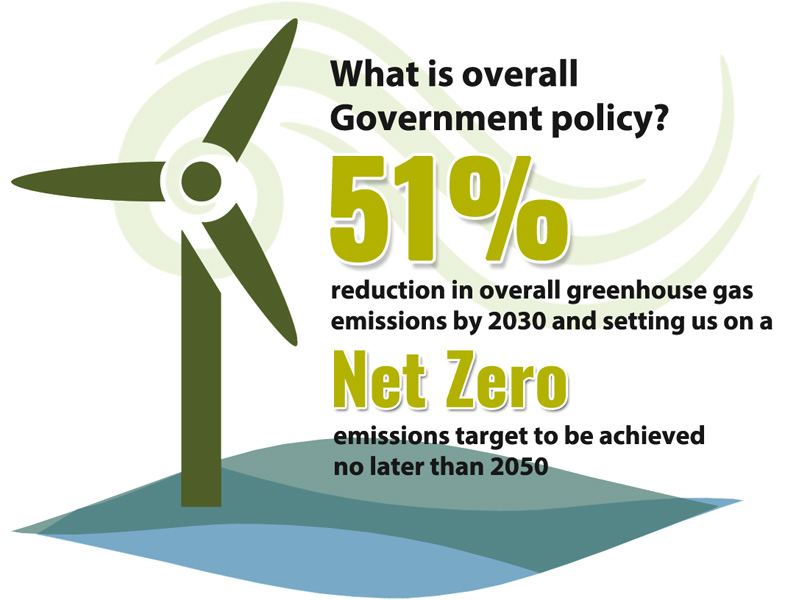
The Just Transition Fund, that is part of the Climate Action Plan, represents an opportunity for Irish tourism enterprises to draw down badly needed investment that will enable more carbon-friendly business practices. The fund is estimated to be €9.5 billion by 2030 and Irish tourism, similar to other sectors, must be facilitated to access this financial assistance to help with the transition. This would allow businesses to retrofit premises, move to renewable energy sources, and minimise resource use and waste production. The vast majority of Irish tourism and hospitality businesses are indigenous SMEs with modest profit margins. Therefore financial support and incentives will be required to move the industry to a more carbon neutral environment.
Maintaining and growing international air connectivity is of fundamental importance and critical to the future success of tourism in Ireland. 75% of Ireland’s tourism economy is made up of international visitation and as an island nation air and sea access is vital. The Government’s own Climate Action Plan, published last year, refers to action being taken at an EU and international level to address emissions from these sectors and Ireland and its tourism industry will support appropriate measures taken at this supranational level.
ITIC welcomes the commitments of the Aviation industry to net zero carbon emissions by 2050. Recognising that new technology aircraft and cleaner fuels will be the key drivers to reach this goal, ITIC strongly supports greater use of Sustainable Aviation Fuel (SAF) as a key mitigation lever for the decarbonisation of aviation. In addition to mandates currently being considered within the ReFuel EU Directive at European level, there is also a requirement for incentives to significantly increase the production and supply of SAF in Europe.
ITIC welcomes the ongoing investments by Irish Aviation in new technology aircraft which are more fuel and noise efficient and also the commitments made by Irish airlines to powering at least 10% of their flights with Sustainable Aviation Fuels (SAF) by 2030. These commitments can only be achieved with the right policy frameworks at both regional and global levels, with essential support for SAF.
To meet the ambitious goal of a reduction by 51% of GHG within just 8 years innovative medium-term solutions will be required. Accredited carbon offset schemes to which businesses and visitors could contribute located on the island of Ireland may have a role to play here. We recognise that our landscape is a key driver for tourism. Offset schemes that reduce GHG emissions, improve biodiversity, engage local communities, and create the potential for employment would have the added benefit of improving the broader tourism product. They could act as an engine of sustainable growth for the tourism sector, particularly in the midlands and west of the country. The state should consider actively developing such schemes, specifically for the sector, given its extensive landholdings through semi-state companies in areas of high amenity and scenic value. In addition a communications strategy targeting domestic and international visitors is required with the aim of creating awareness of actions being taken by the sector to mitigate climate change and biodiversity loss.
Sustainable tourism certifications, which are guided by the UNWTO definition of sustainable tourism, are a crucial tool in the efforts of the Irish tourism industry to evolve into a truly good force in Irish society – environmentally, socially and economically.
Sustainable tourism certifications enable tourism organisations to understand what they are doing right and can also help them identify key areas of sustainability management where they are weaker. Certifications require that policies are put in place, check if they have been implemented, and measure the impact of those policies. They enable in-depth analysis of process and practice.
Credible sustainable tourism certifications, which use independent auditors, help tourism businesses and organisations to:
- Establish best practice systems for measuring and managing impacts (positive and negative) on both the community where they are based and the environment (energy, waste, food waste, water etc).
- Map out a clear plan for businesses to make step-by-step changes to lessen their impacts and to continuously improve.
- Understand and avoid greenwashing – either intentional or unintentional.
- Communicate and market their credible sustainability credentials to customers, the local community and all stakeholders a visible and verifiable way.
- Gain a competitive edge and improve the positive reputation of a business/organisation/destination as customers (both B2B and B2C), stakeholders and government bodies are increasingly demanding sustainability credentials.
- Save money and resources but implementing systems and process that promote efficiency.
Growing evidence shows that sustainable companies, or those with good Environmental Social Governance (ESG) and certification, deliver better financial performance, and investors now value them more highly.
POLICY RECOMMENDATIONS
The following policy recommendations form part of this report. ITIC looks forward to resuming its role within the Departmental Sustainable Tourism Working Group, and industry working with government and tourism agencies will continue to collaborate in this area. The recommendations below are based on the three pillars of sustainability, namely economic, social and environmental. These will be reviewed on an annual basis based on the pace and shape of tourism’s recovery.
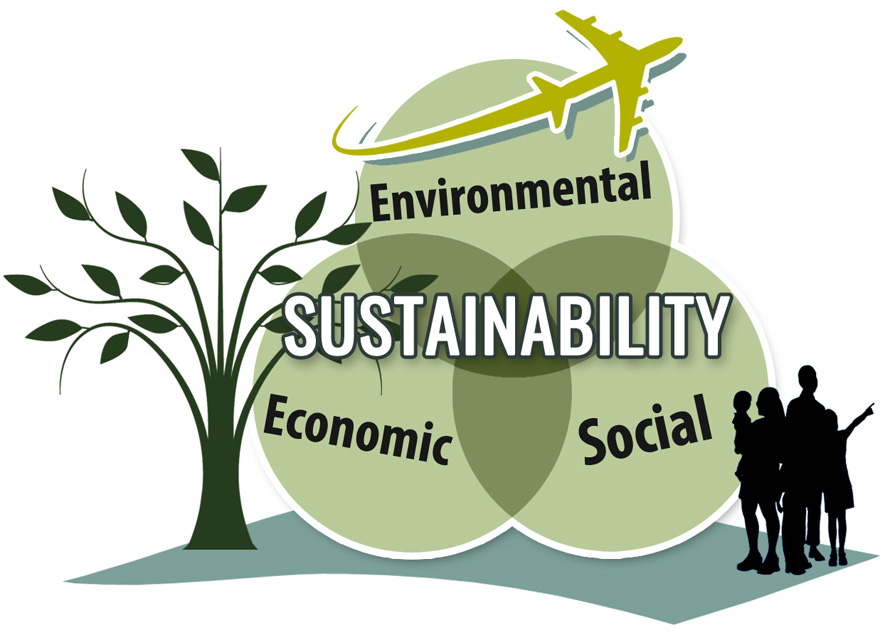
Pro business policies from Government to enable tourism sector to thrive
The vast majority of tourism and hospitality businesses are SMEs and profit margins are modest due to the often seasonal aspect of tourism and the labour-intensive nature of the sector. Government must do all within its power to pursue pro-enterprise and pro-competitive policies. Connectivity links – air and sea – are particularly important for tourism to an island such as Ireland and to this end Government must be mindful of the critical importance of air and sea ports and carriers.
Support the competitiveness of Irish tourism
Commercial viability is critical for enterprises and the soaring costs of business risk impeding recovery. Energy costs, insurance hikes and labour increases are all hurting business and government must work to suppress inflation. Government must accelerate insurance reform and the Vat hike scheduled for September 1st must be deferred until recovery has taken hold. The current Vat rate is comparable to the rest of the EU and for competitive and inflationary reasons should be left unchanged.
Maintain tourism investment at current levels
It is welcome that tourism investment increased in the last budget as business continuity grants and much needed increased overseas marketing funding was put in place. It is vital that such funding remains to allow agencies to invest in key sustainable tourism initiatives for industry. Investment in overseas marketing will also need to be retained at current levels so that Ireland maintains global awareness as a holiday destination.
Staff retention and recruitment incentive
Staffing issues and a labour-supply shortage are a significant barrier to recovery for Irish tourism and measures must be put in place to assist the commercial viability of industry. Fáilte Ireland, the National Tourism Development Authority, in February 2022 estimated that there were 40,000 vacancies within tourism and hospitality. With Ireland at near full employment these vacancies are likely to only be filled by EU residents or non-EU nationals. In that context agencies should assist industry in recruitment roadshows overseas and work permits must be fast-tracked. It is incumbent on industry to make the tourism and hospitality sector as attractive as possible for new entrants and ensure that current employees see a rewarding career path.
Ireland and EU to be leaders in Sustainable Aviation Fuel – Fit for 55 and the Refuel EU directive
The majority of the current SAF supplies (albeit limited) are produced in the US where there are tax credits and incentive mechanisms in place to drive production. In addition to the proposed mandates within the draft Refuel EU directive, there is also a requirement for financial incentives to significantly increase the production and supply of SAF in Europe and potentially in Ireland in order to accelerate the pace of aviation decarbonization.
Make tourism in Ireland inclusive and available for all
Support the development of inclusive tourism in Ireland, which aims to create products and destinations where everyone feels welcome. Funding and grants should be made available to historic tourism buildings to allow for accessibility and all new capital development projects should have social sustainability at their core.
Make sustainability key part of curriculum within every tourism and hospitality education course
There are multiple tourism and hospitality courses available across the whole education spectrum. These are vital to give students the necessary skill-set to pursue a career in tourism. With 40,000 vacancies currently within the tourism industry (ref: Fáilte Ireland research, February 2022) it is evident that people must be attracted to the sector and education plays a key role in this. Within that context ITIC recommends that every tourism and hospitality course across the education sector has sustainability embedded within the curriculum. This will mean that future tourism workers become ambassadors for sustainability both within their own businesses and to all visitors. Likewise all current employees within tourism should be provided with training on the importance of the sustainability agenda as part of upskilling and CPD programmes.
Tourism as a long-term career choice
Pre-pandemic the tourism sector employed 1 in 10 people and in tourism ‘hotspots’ such as Killarney this grew to 1 in 7 jobs. It is critical that these jobs become long-standing careers if possible and staff attrition (a worldwide phenomenon) is reduced. Initiatives should be supported to improve the quality of jobs across the tourism and hospitality sector, ensure career progression, and make the sector as attractive as possible to new recruits. Along with the work of Fáilte Ireland, the Department of Further and Higher Education must take a more proactive role in positioning tourism as a career of choice supporting the development and redesign of tourism education programmes and ensuring the co-ordination of course content at national level.
Strengthen tourism’s role within communities
Fáilte Ireland must be supported with its ongoing engagement with local authorities, brand destination liaison groups, and their regional account management teams to have a strong communication strategy in place to ensure local populations understand the economic and social value of tourism.
Enhance and improve research data relating to visitors and residents
Irish tourism recovery efforts are being undermined by the fact that the CSO have not resumed their data collection of tourists and ITIC urge this to be addressed as soon as possible. Alongside the reinstatement of reporting new forms of research and data collection need to be made available to Ireland’s tourism industry including from the banking and telecoms providers. Such data can be anonymised and reported on in real time and can give strong feedback to industry and policymakers as to visitor behaviour, spend, regional location and other valuable insights. Fáilte Ireland should be supported in their efforts in this area and should be resourced appropriately.
Improve regional and seasonal penetration of tourism to benefit communities and provide employment
The regional spread of tourism across all regions is very important for sustainability purposes and all efforts should be supported to ensure that visitor volume and value is spread as equitably as possible. Positive efforts and trends were apparent pre-pandemic. New products and visitor experiences in less visited parts of Ireland should be developed, funded and promoted. Events, activities and festivals have the ability to stretch the season beyond the busy summer months.
Relaunch Tourism Day with purpose of educating domestic and international visitors on sustainability
Tourism Day was an event organised by ITIC scheduled for April 2019 that had to be cancelled due to the emergence of the pandemic. It was a day when tourism would be celebrated and tourism products and businesses would give special offers and free admissions to the public. ITIC recommend that this initiative recommence with a focus on both celebrating the tourism industry and its employees, whilst at the same time educating visitors on sustainability.
Explore concepts of sustainability pledge for visitors to Ireland
This concept is under consideration as an action within the Department of Tourism’s Sustainable Tourism Working Group. This initiative should be explored and assessed to see if such a pledge has merit.
Set baseline and emission targets now to achieve individual and 2030 & 2050 sector goals
Irish tourism’s carbon footprint needs to be established so progress on reducing it can be monitored on an annual basis. Only when a true and accurate reflection of the green house gas emissions caused by Irish tourism is determined, can an appropriate target be set for both 2030 and 2050. Evidence-based analysis needs to be applied in an Irish context to commence a process to establish a benchmark CO2 value for Irish Tourism.
Monitor & report progress
Once baseline and emission targets for Irish tourism are established, they need to be monitored and reported on an annual audit basis so industry knows if it is on track or behind schedule. In the case of the latter, the audit needs to determine which sector or area within tourism and hospitality is facing challenges in reducing its carbon footprint and allow industry to respond.
Provide finance and investment to industry for the transition
The Government’s Climate Action Plan published last year sets demanding targets of a 51% reduction in GHG by 2030 and net zero by 2050. A Just Transition Fund is part of the Climate Action Plan and is estimated at collecting €9.5 billion by 2030 through the carbon levy. Ireland’s tourism and hospitality industry, like other sectors, must be facilitated to avail of this scheme to help businesses move to more climate friendly model. Equally a representative of the tourism industry should be part of the Just Transition Commission. With margins modest within the sector tourism and hospitality businesses throughout the country will need financial support for retrofitting, using green energy, managing waste and the like. Incentive and capex schemes need to be designed industry to stimulate transformational change.
Roll out carbon calculator for businesses
Work in this area is at an advanced stage and Fáilte Ireland is set to roll out a carbon calculator for businesses this summer. This is an important aspect of monitoring and setting metrics. ITIC welcomes the initiative and urge as many businesses as possible to adopt it. The carbon calculator needs to be user-friendly so as to encourage business buy-in.
Roll out Climate Action toolkit for industry
Similarly Fáilte Ireland are set to publish a Climate Action toolkit for the tourism and hospitality industry and this is very welcome as it should help guide business-owners and help them mitigate their carbon footprint.
Develop an off-setting project of scale in Ireland – circular tourism sustainability model
To meet the ambitious and necessary goals of carbon reduction, innovative medium-term solutions will be required. Accredited carbon offset schemes to which businesses and visitors could contribute located on the island of Ireland may have a role to play here. Offset schemes that reduce GHG emissions, improve biodiversity, engage local communities, and create the potential for employment would have the added benefit of improving the broader tourism product. The state should consider actively developing such schemes, specifically for the sector, given its extensive landholdings through semi-state companies in areas of high amenity and scenic value. This would complement the Government ‘Circular Economy Strategy’ which was launched late last year.
Create ecotourism visitor experience of scale
Irish tourism would benefit from the development of a world-class visitor eco-tourism experience of scale and international appeal. This would have the dual benefits of educating tourists whilst also, if interpreted correctly, providing an enjoyable experiential visit. Ireland’s Midlands would seem an appropriate location, with its peat and boglands terrain, and is easily accessible from all parts of the island. Capital funding should be allocated to such a project, following a feasibility study and subject to a robust business plan. An ecotourism visitor experience has the added benefit of employment and economic activity for the local community.
Simplify planning to allow for expedited energy efficiency developments
Energy efficiency developments such as wind or solar can be held up by planning objections. In certain cases these should be expedited and fast-tracked to ensure that businesses can benefit themselves and the planet from clean energy. Without such improvements to the planning process, the ability of industry to meet its targets will be potentially compromised.
Mass roll out of electric charging points aimed to reduce carbon emissions, air pollution, and congestion
Transport within Ireland is currently a significant cause of carbon emissions and needs to be electrified at a much quicker pace but is dependent on national infrastructure. This is very relevant to Ireland’s tourism industry where visitors often enjoy an Irish experience as part of a coach tour or through the hire of private vehicle. There are circa 2,000 charging points currently in Ireland but it is estimated that Ireland will need close to 30,000 if the goals of decarbonising the transport system are to be met. Ireland, with a state-owned energy supplier in the ESB, can and should roll out significantly more charging points to allow visitors enjoy their Irish tourism experience by electric vehicle.
Incentivise businesses to apply for environmental accreditation
Sustainable tourism certifications, which are guided by the UNWTO definition of sustainable tourism, are a crucial tool in the efforts of the Irish tourism industry to evolve into a truly good force in Irish society – environmentally, socially and economically. They also by definition reduce the danger of ‘greenwashing’ where companies can convey a false impression of their sustainability credentials.
Government and agencies must play a leading role in encouraging and incentivising the industry to be more sustainable and certification is central to this. Grants should be made available to businesses to help them get certified which in time could become as important a trading pre-requisite as any other requirement for tourism registration.
Ireland to sign up to Glasgow Declaration
Ireland should formally adopt the Glasgow Declaration, which was initiated at COP 26, and calls for an increased urgency about the need to accelerate climate action in tourism and to secure strong actions and commitment to support the global goals to halve emissions over the next decade and reach Net Zero emissions as soon as possible before 2050.
Protect & enhance Ireland’s natural and cultural heritage and biodiversity
Ireland’s natural and cultural heritage as well as its biodiversity is a key demand-driver for visitors across all regions. These should be supported at all times and consideration must be given to carrying capacity of certain regions and attractions to reduce negative impacts.
An industry representative on Reducing Food Waste Prevention taskforce
Food waste is a significant cost for the Irish tourism and hospitality industry as well as having a detrimental environmental impact. The Department of Environment, Climate and Communications is set to shortly publish a a National Food Waste Prevention Roadmap. This is to include a taskforce to monitor and review periodically and assess the impact of national food waste prevention measures. This taskforce is due to comprise of key sectors and organisations and it is vital that the tourism and hospitality industry is represented.
CASE STUDIES
The Irish tourism industry is already doing excellent work within the environmental sustainability field.
STEERING GROUP MEMBERS
Thanks to the following who generously contributed knowledge, time and insights to the preparation of this Sustainable Tourism Report.

Rob Rankin
Owner/MD
Vagabond Tours of Ireland

Claire MacEvilly
CEO
Airfield Estate
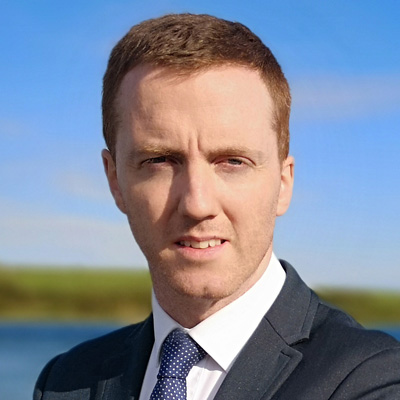
Brendan Kenny
CEO
Ireland’s Association for Adventure Tourism

Róisín Finlay
General Manager
Sustainable Travel Ireland

Stephen Conlon
Executive Secretary
Irish Boat Rental Association

Stephen Meehan
Chief Executive
The Convention Centre Dublin

Niall Timlin
Director of Corporate Affairs
Aer Lingus

Michael Lennon
Director
Westport Woods Hotel

Kirsty Murphy Hughes
Group Sustainability Manager
daa

Gavan Woods
Administrator/CEO
Saint Patrick’s Cathedral

Eoghan O’Mara Walsh
CEO
ITIC

Catherine Flanagan
Head of Special Projects
ITIC
Thanks also goes to the following whose input greatly assisted in producing this Report:
The ITIC Sustainable Tourism Report Working Group
The ITIC Board and Council Members
All our case study contributors
Janie Neumann, Sustainable Tourism Manager, VisitScotland
Martina Bromley, Head of Enterprise & Business Development, Fáilte Ireland
Aileen Deasy, Manager, Enterprise Development, Fáilte Ireland
Mark Henry, Director of Marketing, Tourism Ireland
Neil Aulton, Head of Strategy and Insights, Tourism Ireland
Cordula Wohlmuther, Coordinator, Sustainable Development of Tourism Department, UNWTO
Becky Hargrove, Manager, Kerry Convention Bureau
Pat O’Leary, Kerry Tourism Industry Federation
Mary Mulvey, Board Member, Tourism Ireland
John Carty, Galway Mayo Institute of Technology
Anita Conefrey, Atlantic Technological University Sligo
Dr James Hanrahan, Atlantic Technological University Sligo

